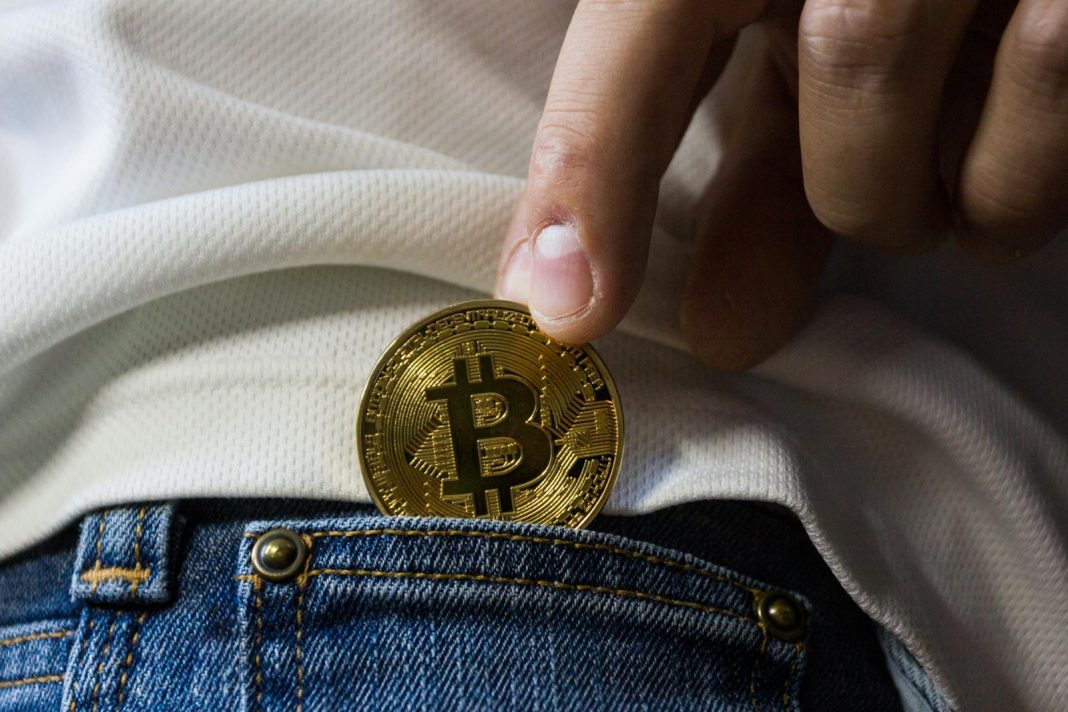Imagine a world where financial transactions are not only conducted peer-to-peer without the need for traditional banking systems but also securely and transparently. This is the realm of decentralized finance, an innovative concept that has gained traction with the advent of Bitcoin. But how did this all start, and what are the guiding principles behind DeFi? Let’s delve into the brief history of Bitcoin and explore the core tenets of decentralized finance.
Brief History and Overview of Bitcoin as a Decentralized Digital Currency
Bitcoin emerged in 2009, the brainchild of an enigmatic figure known as Satoshi Nakamoto. Its creation was a response to the financial crisis of 2008, aiming to provide a decentralized alternative to traditional fiat currencies. The idea was simple yet revolutionary: a digital currency that operates on a peer-to-peer network, secured by cryptography, and without the oversight of banks or governments. Over time, Bitcoin has evolved from an obscure internet phenomenon into a widely recognized financial asset, often dubbed ‘digital gold’ due to its scarcity and potential store of value.
The underlying technology of Bitcoin, blockchain, is a digital ledger that records all transactions across a network of computers. This ensures that each unit of bitcoin is unique and cannot be duplicated or spent twice—solving the double-spend problem common to digital goods. With a capped supply of 21 million coins, Bitcoin’s design mimics the scarcity of precious metals, setting it apart from fiat currencies which can be inflated at will by central authorities.
Explanation of Decentralized Finance (DeFi) and Its Core Principles
Decentralized finance, often referred to as DeFi, builds upon the foundation laid by Bitcoin to create an entire ecosystem of financial services that operate without centralized intermediaries. At its core, DeFi is about democratizing finance, making it more accessible, inclusive, and efficient by leveraging blockchain technology and smart contracts—a set of coded instructions that automatically execute when certain conditions are met.
The principles of DeFi revolve around openness (anyone with an internet connection can participate), interoperability (the ability for different DeFi products to work together seamlessly), and transparency (all transactions and their governing rules are visible to anyone). In DeFi, users maintain control over their funds and personal data, contrasting sharply with the opaque practices of traditional finance where institutions often gatekeep information and authority.

By utilizing technologies such as Ethereum, which expands upon Bitcoin’s concept to include smart contracts, DeFi platforms facilitate lending, borrowing, trading, investment, and risk management without the need for banks, brokers, or other intermediaries. This not only reduces fees and delays but also opens up financial services to parts of the world where traditional banking is unavailable or unreliable.
In essence, DeFi represents a shift from a system where trust is placed in institutions, to one where trust is placed in code and community consensus mechanisms. As we continue to explore the role of Bitcoin within this burgeoning sector, we’ll see how the original cryptocurrency fits into the larger DeFi narrative, both complementing and challenging the existing financial paradigm.
The Role of Bitcoin in Decentralized Finance
As we delve into the intricate fabric of decentralized finance (DeFi), a standout thread is undoubtedly Bitcoin. This pioneering cryptocurrency is not just a digital asset; it’s a cornerstone for many DeFi applications. Let’s unpack how Bitcoin has carved its niche within this revolutionary space.
Bitcoin as Collateral in DeFi Lending Platforms
Imagine needing a loan and instead of walking into a bank, you pledge your Bitcoin online to secure that loan. That’s exactly how Bitcoin functions as collateral on DeFi lending platforms. Users can deposit their Bitcoins into a smart contract and, in return, borrow other cryptocurrencies or stablecoins against their holdings. This system unlocks liquidity for Bitcoin holders without forcing them to sell their investment, which can be particularly advantageous during market dips or when they expect future price appreciation.
Platforms like MakerDAO and Compound have pioneered this approach, allowing users to leverage their Bitcoin holdings in a trustless environment. The process is akin to taking out a mortgage, except there’s no need for credit checks or paperwork—just Bitcoin and a blockchain to record the transaction.
Bitcoin’s Use in Decentralized Exchanges
Decentralized exchanges (DEXs) are critical in the DeFi landscape, offering users a platform to trade cryptocurrencies without an intermediary. Bitcoin holds a vital position here too. It’s often the primary currency against which others are traded, serving as a base pair similar to the role of the US dollar in traditional markets. In DEXs like Uniswap or Sushiswap, Bitcoin can be wrapped (converted into a token compatible with the Ethereum blockchain, for example), allowing it to be traded directly with a plethora of other DeFi tokens.
Moreover, Bitcoin is fundamental in providing liquidity. Users can lock their Bitcoin into liquidity pools, which facilitate trading on DEXs by ensuring there’s enough of each currency for trades to occur without significant price impact. In return, liquidity providers earn transaction fees proportional to their share of the pool, incentivizing the provision of Bitcoin liquidity and supporting the overall health of the DeFi ecosystem.
Challenges and Opportunities of Integrating Bitcoin into DeFi
However, integrating Bitcoin into DeFi is not without its challenges. The most prominent of these is perhaps the difference in blockchain technology. Most DeFi platforms run on Ethereum, which means Bitcoin, operating on its own distinct blockchain, needs to be tokenized to interact with these systems. This process can introduce security risks and complexities, potentially deterring some users.
Despite these hurdles, the opportunities are immense. The sheer size of Bitcoin’s market cap means it is a massive liquidity source if fully integrated into DeFi. Projects are constantly innovating ways to bridge the gap between Bitcoin and Ethereum, such as through cross-chain interoperability solutions. As these technologies mature, we can expect Bitcoin’s role in DeFi to grow even stronger, bringing new levels of liquidity and stability to the market.
In the grand tapestry of decentralized finance, Bitcoin’s role is both foundational and evolutionary. As a form of collateral, a medium of exchange, and a source of liquidity, Bitcoin helps to knit together the diverse elements of DeFi, despite the ongoing challenges. With each challenge surmounted, Bitcoin cements its place not only in the history of money but also in the future of finance.
Benefits and Risks of Bitcoin in DeFi
As we delve into the complexities and nuances of how Bitcoin interfaces with decentralized finance, it’s vital to weigh the benefits against the risks. The allure of Bitcoin within the DeFi landscape is undeniable, but it comes with its own set of challenges that need careful consideration.
Advantages of using Bitcoin in DeFi
Bitcoin, the pioneering cryptocurrency, brings a plethora of advantages to the DeFi space. Its security is unparalleled, thanks to the robust cryptographic techniques underlying its blockchain technology, which make it resistant to fraud and cyber-attacks. This security feature instills confidence in users and investors, knowing their digital assets are safe. Furthermore, Bitcoin’s liquidity is a key advantage. As the most widely recognized and utilized cryptocurrency, it offers ample market depth, allowing large transactions without significantly affecting the price.
The global accessibility of Bitcoin also stands out. With an internet connection, anyone around the world can participate in DeFi markets using Bitcoin, bypassing traditional banking systems and national borders. This democratization of finance opens up opportunities for unbanked populations to access financial services previously unavailable to them.
Risks associated with Bitcoin’s price volatility
However, Bitcoin’s price volatility poses a significant risk. Its value can swing wildly within short periods, impacting DeFi protocols that use Bitcoin as collateral for loans or other financial instruments. Sudden drops in Bitcoin’s price can trigger “liquidation events” where collateralized positions are automatically sold off to repay loans, potentially leading to cascading effects throughout the DeFi ecosystem.
Moreover, this volatility complicates the pricing mechanisms of DeFi applications, which must constantly adjust to Bitcoin’s fluctuating worth. Users must stay vigilant about market movements to avoid unexpected losses, adding an element of complexity and risk to their DeFi engagements.
Regulatory and compliance considerations
Another angle to consider is the realm of regulation and compliance. Bitcoin-based DeFi applications operate in an evolving legal landscape. The lack of clarity around the regulatory status of cryptocurrencies like Bitcoin can lead to unforeseen legal challenges for DeFi platforms and their users. Governments worldwide are still grappling with how to classify, regulate, and tax cryptocurrency transactions, which could result in sudden policy changes that may affect the operation and accessibility of Bitcoin in DeFi.
Compliance is particularly tricky because DeFi’s decentralized nature does not easily fit within traditional financial regulatory frameworks. DeFi platforms leveraging Bitcoin must navigate this uncertainty, balancing innovation with the need to comply with existing laws and any new regulations that might emerge.
In closing, the integration of Bitcoin into decentralized finance presents a fascinating interplay of security, liquidity, and global access with the challenges of volatility and a complex regulatory environment. Understanding these factors is crucial for anyone looking to explore the world of DeFi through the lens of Bitcoin. As we continue to observe Bitcoin’s evolution within DeFi, these benefits and risks will play a defining role in shaping the protocols and platforms that underpin the future of decentralized financial services.
Technical Aspects: Utilizing Bitcoin in DeFi Protocols
The nitty-gritty of how Bitcoin is woven into the fabric of decentralized finance (DeFi) is not just fascinating; it’s the cornerstone of a revolutionary financial ecosystem. At its heart lie technical protocols and smart contracts that enable this integration.
Overview of Technical Protocols and Smart Contracts
Bitcoin, originally not designed to support complex smart contracts, has found its place in DeFi through innovative sidechains and layers. Think of these as bridges or extensions that expand Bitcoin’s functionality. One such example is the Lightning Network, which facilitates faster transactions, making Bitcoin more suitable for everyday use. Another key player is the RSK (Rootstock) smart contract platform, which pegs to Bitcoin and enriches it with smart contract capabilities, allowing developers to create decentralized apps that leverage Bitcoin’s security without compromising on features.
Interoperability Challenges and Solutions
However, Bitcoin’s journey into DeFi isn’t all smooth sailing. Interoperability, or the ability to seamlessly interact with other blockchain systems, presents significant challenges. Different blockchains speak different languages, in a manner of speaking, and Bitcoin’s unique language can sometimes isolate it. But fear not, for solutions such as wrapped BTC (WBTC), a token on the Ethereum blockchain representing Bitcoin, have emerged. This allows Bitcoin to be used in Ethereum’s vast DeFi landscape, providing users with the best of both worlds.
Other initiatives include cross-chain bridges and atomic swaps that allow direct trading between different cryptocurrencies without the need for an intermediary. These technologies are still in their infancy but hold the promise of creating a truly interconnected DeFi ecosystem where Bitcoin plays a central role.
Potential Innovations and Developments
Looking to the horizon, the potential innovations and developments in leveraging Bitcoin for decentralized financial services are thrilling. Developers are tirelessly working on scalability solutions to handle more transactions, reduce fees, and speed up confirmation times. Privacy enhancements like Taproot, which makes transactions more secure and efficient, are also on the way. Plus, the advent of decentralized identity solutions could make using Bitcoin and DeFi not just safer, but also more user-friendly and compliant with global regulations.

As we continue to build upon these foundations, the day when Bitcoin becomes as versatile in DeFi as any other cryptocurrency isn’t just a dream, but an impending reality. With each technological stride, Bitcoin’s value proposition in DeFi grows stronger, inviting both innovation and scrutiny in equal measure.
Future Outlook and Concluding Remarks
What does the horizon hold for Bitcoin within the ever-evolving landscape of decentralized finance (DeFi)? The trends are as dynamic as they are promising. Emerging technologies are already reshaping the way Bitcoin interacts with various DeFi applications. From the development of more sophisticated smart contracts to the integration of Bitcoin into novel financial services, the potential evolution of Bitcoin’s role in DeFi is vast.
For individuals and institutions considering dipping their toes into Bitcoin-powered DeFi, the water is warm but not without its currents. Participating requires a solid understanding of the market dynamics, a keen eye on security practices, and a good grip on the regulatory pulse. As we have seen, the Bitcoin ecosystem within DeFi is not just about investment opportunities; it’s also about innovation, access to global markets, and contributing to an alternative financial system.
The significance of Bitcoin in decentralized finance cannot be overstated. It has been the cornerstone of a financial revolution, challenging traditional banking and offering an unprecedented level of autonomy to its users. As we close this discussion, let’s reflect on Bitcoin’s journey from an obscure digital asset to a pivotal element of the DeFi space, suggesting a future where finance is more accessible, transparent, and equitable for all.
Emerging Trends and Potential Evolution
- Advancements in Layer-2 solutions for improved scalability and transaction speed.
- Increased adoption of privacy protocols, enhancing anonymity in transactions.
- The rise of decentralized autonomous organizations (DAOs) using Bitcoin as a governance token.
Considerations for Participation
- Understanding the inherent risks, including market volatility and technological vulnerabilities.
- Navigating the complex legal landscape, being aware of different regulations across jurisdictions.
- Staying informed about security best practices to safeguard assets against theft and fraud.
Closing Thoughts on Bitcoin’s Significance
Bitcoin’s inception ignited the spark that led to the DeFi revolution, and its integration into the DeFi ecosystem is a testament to its versatility and enduring value. Its journey reflects a broader shift towards a more decentralized world, where power and control can be redistributed to the edges of the network, to the individual user. As we look ahead, we remain optimistic that Bitcoin, as the original cryptocurrency, will continue to play a central role in the unfolding story of DeFi.


